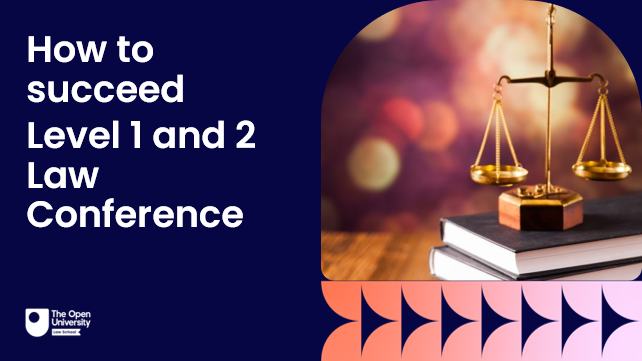Integrating Educational Theory into Law Conference Material Design

By Carol Edwards
Once upon a time, a long time ago, John Dewy (1938) emphasised the importance of student experiences in learning. This pedagogical approach is often termed “active learning”, “learning by doing” or” experiential learning” (Jarvis 1983). The concept was further developed by the Belarusian psychologist Len Vygotsky (cited in Jarvis 1983) who argues that learning does not take place in isolation, it is a social event where students can learn from each other. Conversely Piaget (cited in Blake and Pope 2008) argues that learning is an individual activity. Clearly there is a conflict between social learning and individual learning, but this conflict is not insurmountable. These concepts are regularly synthesised in most tutorials, seminars and lessons. Teachers, lecturers and tutors manage to create valuable learning experiences by combining individual exploration of a topic with collective knowledge exchange.
In more recent work, Wenger (1998) suggested that learning can take place via engagement in actions and interactions, which can be developed via shared experiences which allow students to form communities of practice. Today it is acknowledged that communities of practice do not form by simple interaction, however the interaction can be the foundation for the development of “social learning spaces”. A social learning space is defined “as an experience of engagement that takes place among people in pursuit of learning to make a difference” (Wenger-Trayner and Wenger-Trayner 2020 p13).

All these things were in my mind when I embarked on leading a team to develop the learning materials for How to succeed: Level 1 and Level 2 Law Conferences. These conferences consisted of a set of five Law events to be offered to students over five venues within the UK and recording sessions to be available for students unable to attend. No small task!
Working with an exceptional team of Academic Student Experience Managers we kept these basic educational theories in the forefront of our mind to ensure that sessions were devised that were interactive, catering to both group dynamics and individual learning preferences while providing the opportunity for students to integrate and start to form communities of support. Clearly no easy task, but we knew our Associate Lecturers (ALs) were the ideal candidates to take on this challenge. Expressions of interest were collected and scrutinised to find the best ALs to devise these materials. We were looking for tutors with experience of OU students, face-to-face delivery and substantive legal knowledge. The choice of tutors was so wide that we were able to ask tutors to work in pairs to produce the materials.
Much of tutoring work is conducted in isolation and tutors have very little opportunity to meet with each other. So, the need to collaborate on this task provided an opportunity to get to know another tutor better and start to form their own support groups. Collaboration, the idea of individuals working together on a project, comes with many benefits including greater creativity and problem solving (ideal as the ALs were devising teaching sessions where a key aim was to be inventive), peer learning, greater productivity and can contribute to employee wellbeing. Once briefed the ALs went away and produced a teaching plan, slides and activities for the allocated session. This was then critically reviewed by the production team. In any project of this nature, critical review is key and provides an opportunity to identify errors, areas that do not work well and suggest alternative methods of working. Once the materials were signed off, the ALs produced a recorded session delivering their teaching materials. This not only provided a resource for students who were unable to attend the conference. It also provided an opportunity to show case their work and resources for other ALs who were asked to deliver the sessions at a conference.
While all this was going on the Materials Production Team were also tasked with finding keynote speakers, developing in conversation sessions and finding speakers for “A day in the Life”. Each task required briefing documents to be produced and regular critical review of the presenters plans to ensure consistency across the conferences. None of this would have been possible without regular meetings and a very detailed spreadsheet to enable us to track the progress of each task. Furthermore, the team had to ensure any paper materials were available on the day and this required ensuring documents were available at key times for photocopying and transportation to the relevant venue. I have to confess to being relieved when the first conferences had taken place and I knew the right materials had been produced and shipped to the venues.
In conclusion

The conferences were a success with students’ feeding back that they enjoyed the sessions. This does not mean that everything was prefect, both students and ALs felt that some of the sessions had too much material or had activities which were very time consuming because of the complex nature of the exercises. The keynotes were very well received and I received one email from a student saying how inspirational the keynote presenter was. Students enjoyed the in conversations valuing the opportunity to see the topic in a different light. While the Day in the life sessions were considered very valuable as they provided the students with an opportunity to hear about life in the legal profession.
From my perspective, if I were to do this again, I would insist we reduced the amount of paper. We were far from environmentally friendly. My advice to anyone faced with a similar task is preparation prevents poor performance! Surround yourself with a good, committed team who have a clear understanding of the overall goal and share the vision. Oh, and keep a detailed progress tracker.
I was lucky I had a wonderful team and I would like to take this opportunity of thanking, Mel Holmes, Sam Woods-Peel and Jane Hardwick for being such wonderful colleagues and still smiling when the going got tough. To quote Sam “hard work can be fun with the right team”.
References
- Blake B & Pope T (2008) Developmental Psychology: Incorporating Piaget’s and Vygotsky’s Theories in Classrooms, Journal of Cross-Disciplinary Perspectives in Education Vol. 1, No. 1) 59 - 67 59
- Dewey J, (1938) Experience and Education https://archieve.org/details/ExpereinceAndEducation/page/n13/Mode/2up Accessed 2nd January 2024
- Jarvis P, (20040, Adult Education & Lifelong Learning – Theory and Practice 3rd edition, Routledger Falmer.
- Wenger, E. (1998). Communities of Practice – Learning, Meaning, and Identity Cambridge University Press.
- Wenger-Trayner, E. & Wenger-Traynor, B. (2020) Learning to Make a Difference – Value Creation in Social learning Spaces, University Press.

Carol Edwards
Carol is a Senior Lecturer within the Law School. She joined the OU as an Associate Lecturer in 2015 and became a Student Experience Manager in 2018 before taking up the role of Assistant Head of Student Experience – Retention and Outcomes in 2023. She is a Senior Fellow of the HEA. Carol’s research interests include online teaching pedagogy with a particular focus on tackling student and staff isolation in the distance learning environment via such programmes as online student peer mentoring, The Belonging Project and Tutor CPD and social programmes. She has published and presented at conferences on this area.